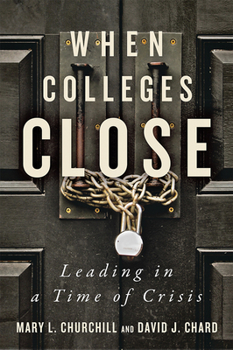When Colleges Close: Leading in a Time of Crisis
How would you lead your college if you knew that you had to close it?
Founded in 1888 as Miss Wheelock's Kindergarten Training School, Wheelock College's mission was to prepare students to work in the helping professions, including teaching and social work. But in 2018, struggling with growing debt and declining admissions, the 130-year-old institution officially closed and merged with Boston University, creating the BU Wheelock College of Education and Human Development.
Written by the former president and vice president of academic affairs of Wheelock College, When Colleges Close presents the remarkable success story of Wheelock's merger with Boston University and its closure as a standalone institution. In an era when more and more institutions are at risk of closure, this book offers a detailed description of how the board and administration of one small college with an enrollment of under 1,100 students determined early that it needed to plan for a future in which it would no longer be viable. Mary L. Churchill and David J. Chard provide readers with a detailed understanding of the process they designed with their board and select members of the Wheelock community to generate multiple partnership options. They also describe how they managed the process through the final negotiations, despite being a small institution in an asymmetric merger with Boston University, which has an enrollment of over 33,000 students.
As the higher education sector faces increased volatility, colleges and universities will need authentic, transparent, and student-focused leadership to navigate new forms of crisis and transition. Written for leaders in both small colleges and larger universities who may find themselves in similar situations, as well as for scholars of higher education who are interested in strategic planning, When Colleges Close is the sobering yet hopeful story of a venerable regional institution that turned its long-term enrollment challenges into a strong merger.





